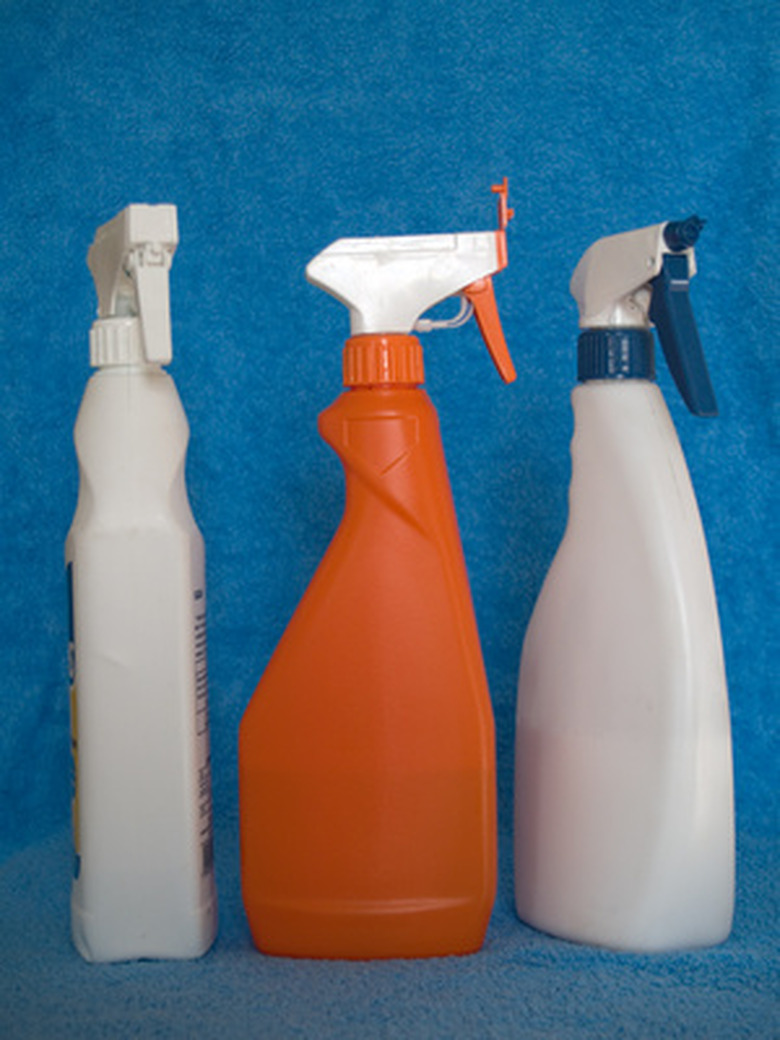List Of Disinfectants
Disinfectants work to kill microorganisms that cause illness and odor. When choosing a disinfectant for home use, generally cost and effectiveness are the two most important characteristics that you need to consider. You may find that multiple types of disinfectants are useful for different depending on the situations you encounter at home. Chlorine-based disinfectants, for example, are particularly effective in the kitchen and bathroom.
Alcohols
Alcohols
Alcohols function as effective skin and instrument disinfectants. They work quickly and leave no residue. Isopropyl alcohol is inexpensive, and works well as a general disinfectant. On the other hand, alcohols are flammable and do not kill certain viruses. Alcohols also evaporate quickly, which means they are not in contact for very long with the microbes you are using them against. Alcohol is also an eye irritant.
Aldehydes
Aldehydes
Formaldehyde and other disinfectants in the same class work well against bacteria, spore and viruses. They also do not stain skin or fabric and they are non-corrosive. Aldehydes sterilize plastics, rubber and other items that you cannot sterilize in an autoclave. Aldehydes are not stable in solutions, however; they must be used in an alkaline solution to remain effective. They are also a carcinogen, and can only be used in a ventilated hood.
Chlorine
Chlorine
Chlorine, like the active ingredients in common household bleach, works effectively as a bactericide, fungicide and sporicide. Chlorine can also be used safely around areas where food is prepared, and it is inexpensive. Chlorine works quickly, but it corrodes metals and has an unpleasant odor. Chlorine is also highly irritating to eyes, skin and the respiratory system.
Iodophors
Iodophors
Iodophor is another name for iodine-based disinfectants. Iodophors are commonly used to disinfect medical equipment rather than household items. They react quickly to kill microbes, and they store well. They do stain plastics, skin and fabrics easily, and iodophors corrode metals. Iodine-based disinfectants have a strong odor and they vaporize at 120 to 125 degrees Fahrenheit. You cannot use them effectively with hot water.
Quaternary Ammonium Compounds (QUATS)
Quaternary Ammonium Compounds (QUATS)
QUATs are a class of chemicals found in many household cleaning products. They work well as bactericides, fungicides and virucides. These chemicals work quickly and although they have deodorizing properties, they are colorless and odorless. These chemicals function well in temperatures up to 212 degrees Fahrenheit, so using them with hot water is not a problem. They are not as effective in hard water however, and the detergents within the product can interfere with the chemical's disinfecting capabilities. These chemicals are not irritating to skin, but they are highly irritating if you get them in your eyes.
